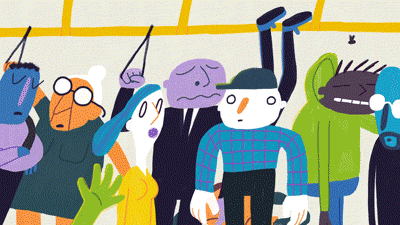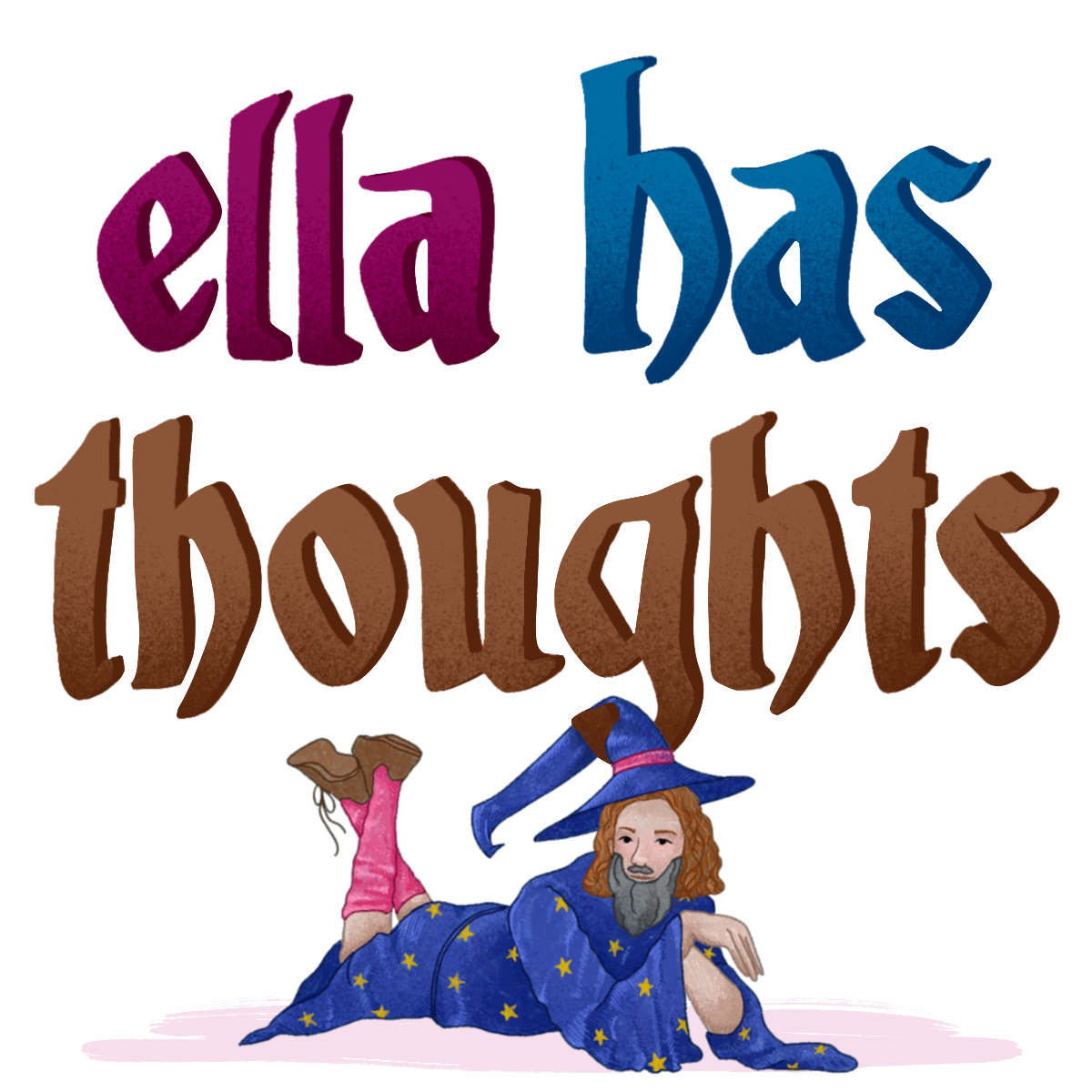On Reading and Thinking (gasp)
In which I talk about the time I met a woman in a bookstore, and I make a bus into a metaphor.
Hello friends, and welcome to this personal and rather story-like post on reading, thinking, and the way media shapes us. Oh, and “the odd luxury fuck-off” (Susan, my new friend, 2025).
A couple of weeks ago I was haunting the shelves of my local bookshop and got talking to an elderly woman who told me she really enjoyed books where “women give men get what’s coming to ‘em, and sometimes what’s not”, which she quickly followed up with, “I don’t know what that says about me”. I laughed and said, “I think we all enjoy things in fiction that we wouldn’t support in real life. I also think one reason I like stories about angry women is because I’m a scaredy cat and I’ve never felt like I’ve had permission to get angry myself. Have you?”
Then she told me her name—but we’ll call her Susan—and we got to talking about her divorce, her four kids that she raised mostly on her own, and how at the age of sixty-eight she’s finally doing what she wants—and that includes telling people to “fuck right off”, which, frankly, I found hilarious coming from a woman as short and gentle-looking as her. As it turns out, a year ago Susan read a book in which a woman finally built up the courage to say “fuck right off” to her overly-controlling husband, and she’s been allowing herself to indulge in what she called “the odd luxury fuck-off” ever since, and is also now an avid reader.
Susan then asked me if I could recommend any books, any at all, and we haunted the shelves together for the better part of an hour, talking about all the things we’ve taken in from what we’ve read, all the things we dislike in stories, all the things we wish we’d see more of (Susan wants more fantasy stories with elderly characters that have attitude and are along for the whole ride, if anyone is curious), and all the things in between. Then we parted ways, and I have been thinking on that wonderful interaction ever since, especially because we then later boarded the same bus, and she gave me the coolest wink I’ve ever received in my life.
This is also the part where I learned I can’t wink with my right eye, but I’ll try to connect it to some relevant point later. Promise.
I’ve also been thinking about how taking stories as they are, and encouraging others to do the same, feels to me like an anti-thinking fancy. If we accept the writer’s perspective without looking through any other lens, be that our own or someone else’s, we are being passive—riding a bus without paying attention to who is sitting beside us and who is being forced to stand despite needing a seat, without seeing the people waiting at the bus stop as the bus ignores them and drives on by, or in some more gruesome cases, hits them and keeps on going. While flipping the bird.

The familiar…
One of the reasons people enjoy (for example) fairytale retellings, reimaginings, remixes, and subversions is because of familiarity—the fact of having already seen or known a thing in some capacity. But with mass-scale familiarity comes homogeneity and predictability, two things that are connected to the reproduction of ideology. I was talking to another friend about this the other day, specifically in the context of the Brothers Grimm’s tales and how contemporary authors draw on those without having any knowledge of how and why some of the disability narratives in them may be harmful:
homogeneity and predictability are two elements that contribute to the normalisation of ideologies, training those who are frequently exposed and engaging with these narratives to no longer see fiction and reality as two removed and separate realms.
No, I don’t mean people start to think Star Wars is real, or that people start confusing their cat for a shapeshifter. I’m talking about bleed-through. A blurring of lines. A merging traffic lane.
Take for example the narrative of the disabled person who hates their disability and would do anything to be “whole” and able-bodied again, such as Jake Sully in AVATAR; and the recurrent discourse about how disability “doesn’t make any sense” in worlds with magic because surely everyone would want to be cured. Take for example the “inspiring” narrative of the Super-Crip that can overcome their disability, such as Forest Gump; and the way “disabled person overcomes disability to…” is a frequent headline; and the way multiple medical professionals have pushed me to “just try harder” to overcome the limitations of my multiple disabilities, leading to morse disablement.
When we see a narrative enough times, unchallenged, it becomes normal. Expected. Whether we like it or not, I think we do a disservice to ourselves and others when we fail to understand and acknowledge that misrepresenting reality (especially on a wide scale) helps to reinforce social roles, scripts, and expectations. Worse, it then becomes largely invisible to us. It drives under the bridge of our conscious awareness, but it acts as part of the foundation of our understanding of the world, informing many of our opinions, reactions, and choices. It’s like walking through the world believing you can wink with your right eye, and that you’ve been doing that rather than blinking froggishly at people.
For any nerds like me out there, this is the Exposure Effect or The Familiarity Principle: a psychological phenomenon where people tend to develop a preference for things simply because they become familiar with them. I’d also like to mention something called The Cultivation Theory too, a similar theory which operates on the principle that when you have a gap in knowledge and experience, media can close those gaps for you while you’re unaware it’s happening.
I’m thinking about Susan’s desire for more fantasy stories that feature elderly people who have attitude—not the kind that makes them an antagonistic force in the family, not the kind that is bigoted, not the kind that is ignorant, but the kind that is fun and cheeky and shows how elderly people can be “bloody funny and interesting, even if they can’t swing a sword”. She wants them along for the whole ride. I keep thinking about how often I see elderly women in fantasy who are stuck at home, are there to get in the way of a romance, are there to be the traditionalist or the sage with wise advice or the disabled person that doesn’t have much say or agency at all.
As much as Susan seeks escape in these books, she’s still touched (in positive and negative ways) by the way older people like her are written. As much as I also seek escape, I don’t seek to escape the existence of myself and people like me, but that often feels like what’s expected—and that it’s also expected we don’t critique a book for it’s lack of disabled characters or for it’s horrible treatment of them because “it’s just fantasy” and isn’t “that deep”.
“What does that say about me?”
I’m thinking a lot about this question right now, if you couldn’t already tell, because of Susan. This could also be in part because the Trans Rights Readathon just finished, and the Disability Readathon (all through April!) has begun, so I’m surrounded by some truly wonderful and much-needed conversations about representation of marginalised identities, as well as being exposed to some truly Interesting™️ takes about whether one needs or should have to read diversely—or for that matter, even have their brain on while they read.
I think what we read, watch, and enjoy, and how we do those things and why, does say something about us. I’m not ignoring the fact that sometimes we might just like to read weird shit, but even that, I think, means something. Why do we derive comfort and joy from it? This isn’t a call to pathologise yourself or others based on your media consumption. Rather, I’d like to suggest that if your idea of escapism is stories without people of colour, disabled people, or other people of other marginalised identities for example, that is worth exploring.
I’m put in mind of Ursula K. Le Guin’s The Carrier Bag Theory of Fiction (in which she presents the theory that the first cultural device used by humans was some sort of container or a carrier bag for food, rather than a weapon such as a spear). She said:
"A book holds words. Words hold things. They bear meanings. A novel is a medicine bundle, holding things in a particular, powerful relation to one another and to us."
Beliefs are both socially constructed and contested through stories (among other things). What beliefs are we picking up and putting in our carrier bags? What beliefs are we absorbing from picking up and reading books that espouse the same narratives, and in what ways do these beliefs inform our relationships with the world and the people around us?
Lastly, all of this makes me think about trauma, because it can function similarly; Recurring traumatic experiences can fundamentally shape the narratives you tell and the ways you understand yourself, and these narratives/understandings can be self-diminishing. The way this connects to reading, for me, is two-fold. The first is that if people like Susan can derive positive influence from a book, they can also derive derive negative and harmful influences from books. The second is that I grew up seeing disabled characters treated as disposable, as acceptable losses, as miserable people whose fate I should look upon as dreadful. And being disabled myself, this resulted in some pretty deeply hurtful and oppressive narratives that I needed to unlearn (and am still unlearning).
Just like working through traumatic experiences, unlearning narratives requires us to interrogate them, reinterpret them, and even renarrate them in less damaging ways. I think the master has won when we start tuning out his tools, seeing the nails he uses to spike our tires as little more than harmless party confetti, easily run-over, blown here on a gust of wind.
So Susan got a divorce…
… and learned how to value herself. She raised four kids and worked her ass off to buy books—a treat and a hobby she was never allowed before. She enjoys stories where “women give men get what’s coming to ‘em, and sometimes what’s not” and she’s so grateful for learning the freedom and empowerment of delivering “the odd luxury fuck-off” from a book that she’ll never stop reading.
Like her, I enjoy stories where women get to be mad and disabled characters get to be cool, fully-fleshed out people whose lives are worth living. I put together an anthology of 14 stories by disabled and chronically ill authors called ARTIFICE & ACCESS (Paperback / Ebook) so others could experience that joy too.
In conclusion, stories teach us things, and they say things about us too. Board the bus with the intention to have fun, by all means, but I think it would do so much good to pay attention to who else is allowed the comfort and accessibility of a seat. Oh, and pay attention to who is driving the bus, too. I hear you can get driver’s licenses from cereal boxes.
What do you think?
